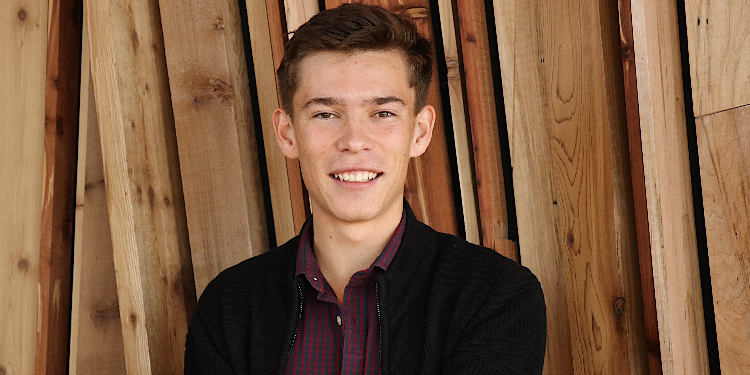
Corne Beneke is in his first year of an actuarial sciences degree at the Oral Roberts University in the United States. Holder of academic scholarships, Corne tells Expat.com what to expect when applying to American universities…
What made you want to study in America?
I played competitive junior tennis my entire high school career, and with these thoughts about my country, I initially pursued an American university because of college sport in hopes of receiving an athletic scholarship. Instead, I earned enough academic money at an institution of my liking, which is why I chose to enroll there. Some more factors that contributed is that the American education system is a lot more stable than the one in my home country, South Africa. Additionally, America offers countless more opportunities in both the business and the sporting world. I chose to study in America to open doors for myself and my family that one day might be needed.
How did you learn about the application process to study in America?
My tennis coach had a vague understanding of the process and introduced me to the most basic parts. I took the rest upon myself and did as much research as I thought I needed, but as they say, you don't know what you don't know. I managed to complete enough steps before I was fortunate enough to meet with an admissions counselor from a U.S. university. She helped direct me down the right path, and my mom and I set out to conquer the process.
So you did not get any help applying for college?
Besides having a one-hour discussion with an admissions counselor halfway through my journey, my mom and I had no assistance. Everything I did was based on our own judgment, and although I did most things upfront, my mom was my cornerstone. We reconciled the stories that we heard about studying abroad with what we found on the internet, and fortunately, they were somewhat accurate. I started College Alliance, a university admissions agency, because I noticed other students were struggling through the same process as I did. Our mission is to bring knowledge, guidance, and leadership to these South African students so that they can ease through the process and experience the best education the world has to offer.
Around when did you start?
I did my SAT in October of 2018, which is also when I started reaching out to colleges. In December of that year, I played a college showcase in Miami, which is an event for students athletes to network with coaches. I created a list of potential universities and submitted my application to each within January of 2019.
You have received academic scholarships to study in a private institution in Oklahoma- how easy was it to land scholarships for the US? How did you find the process?
To my surprise, and entirely out of experience, I found that most schools award merit-based scholarships based on your GPA and SAT scores. This was fairly straightforward because your application is automatically considered for these funds. However, this is not nearly enough to pay for university, so applying for other programs and funds became necessary. I found that most schools offer some other form of scholarships to talented individuals, specific degrees, certain programs, and honors students. The honors program was the most consistent throughout the schools that I applied to and usually offered some money.
If you are extraordinary compared to other athletes in a sport, receiving a sports scholarship isn't too difficult either. The problem with that though is that you need exposure. You have to get in front of the right people and talk to the ones that are interested in you. I sought exposure and connections too late, which is why I had to make the decision to pursue my academic passions. Luckily, God has been good, and I ended up exactly where I wanted to be
How is college life in America? What do you enjoy most about it?
College life in America, and from what I have heard from my friends back home, have some fundamental differences. The community on campus is something special. There is something about staying with and seeing the same people of your age that creates culture. It makes for fun times and events both at and away from school
Additionally, the honors program provides many opportunities to work with professors on collaborative studies. You gain the chance to work with experts in their field, which teaches you real-life experience better than sitting in a classroom.
My favorite part about studying in America is that the university hosts business events with speakers from around the world. If you hang around afterward, you will almost certainly get the chance to speak with them. I have been fortunate enough to visit one of the speakers at their office for a more personal experience.
What would you say to anyone who wants to study abroad but does not know where to start?
First of all, start early. Start taking the necessary tests, getting recommendation letters, gaining exposure, and making a list of where you want to apply at least six months before December (this is the time that applications are open for submission). It will give you enough time to learn about the process and even make a few not-so-costly mistakes. You started early, so you have time to fix them.
If you are really unsure and afraid, seek help. Ask around at school and contact international students that have been through the process. You will be surprised, just as I was, of how many people are willing to assist you when asked.
Lastly, do not aim too low. You have more to offer than you can imagine, so be sure to seek after those dreams!











